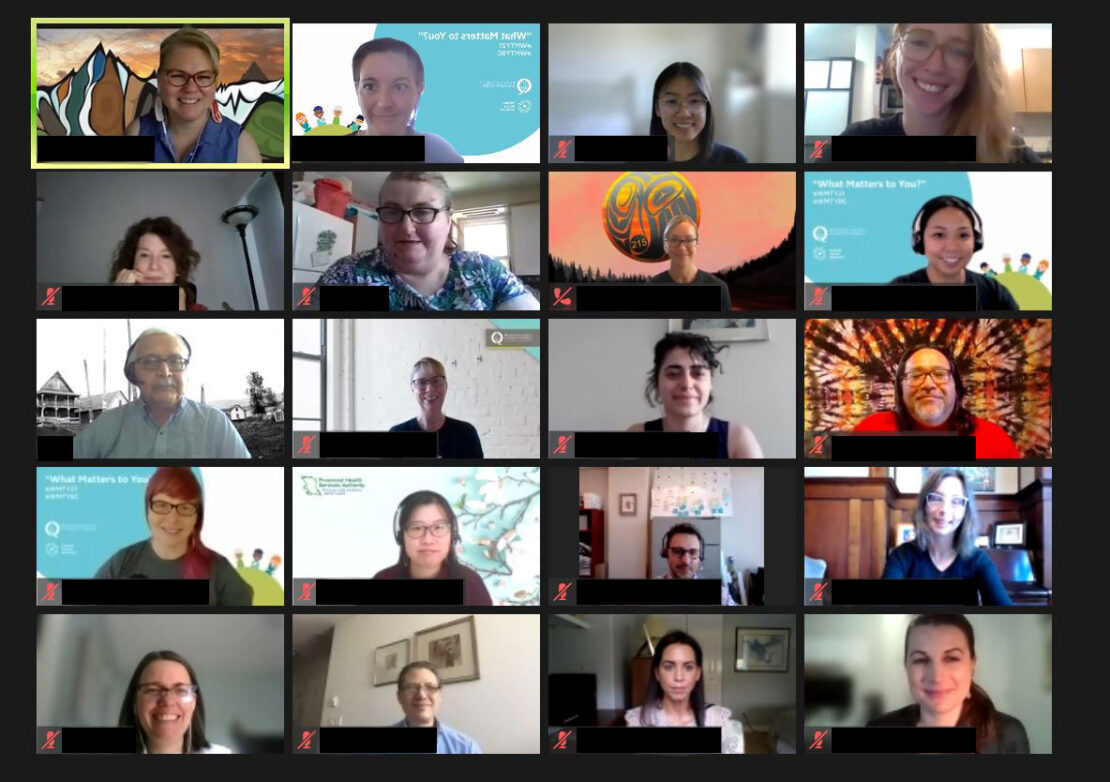New Companion Guide and Pamphlet
How do we know when we’ve achieved cultural safety? When both sides leave feeling content. This is one answer shared as we met with Indigenous patient partners during a recent project to develop resources about culturally safe patient engagement. It was co-created with Indigenous patient partners based on conversations at an event hosted by us in June 2021.
The event was co-designed and co-facilitated by First Nations patient partner, the late Gitxsan Hereditary Chief Sim’oogit Ma’os, Bill Blackwater Jr., Tammy Hoefer, Director of Patient & Public Engagement and Cathy Almost, Engagement Leader. Indigenous (First Nations, Métis and Inuit) patient partners were asked what mattered to them when participating in culturally safe patient engagement opportunities. Health care partners were invited to attend as witnesses to the patient partners’ stories by being compassionate and silent observers, giving attention to others without judgement and providing a space for partners to speak their truth.
It was held in celebration of International “What Matters to You?” Day in British Columbia. When providers have a conversation about what really matters to the people they care for, it helps ensure that care is aligned with patient preferences, builds trusting relationships between patients, families and their health care providers, and advances person- and family-centred care.
Following the event, discussion notes were themed and eight key principles emerged:
- Awareness & Understanding
- Learning & Education
- Build Relationships
- Prepare
- Kindness & Empathy
- Respect
- Value
- Listen
Themes were developed into key messages, recommendations and actions. Bert Azak, a Nisga’a graphic designer, contributed his artwork and designed two resources: an at-a-glance document which summarizes the principles, and a companion guide which provides further details about the conversation that took place during this event. These resources represent a moment in time when 13 patient partners gave their opinions about culturally safe patient engagement.
Indigenous perspectives must be included in health care decision-making to support the continued decolonizing of services and ensure equitable access to high-quality care. Meaningful engagement with Indigenous patient partners is foundational to obtaining this perspective, and many health care providers have expressed an interest in better understanding cultural safety (such as what’s important to Indigenous Peoples and how does one act in a culturally safe way?).
We hope that you can take one more step towards reconciliation by utilizing these principles in your work, continuing to be a learner and asking questions.
We’d like to leave you with a quote from Hereditary Chief Bill Blackwater Jr. provided to Tammy and Cathy in an email following the event:
“Yes, time did fly by, but our message, important to the beginning of improving the relationship between Indigenous patients and health care providers, was brought forward through the work by BCPSQC and was successful. My biggest hope is that the witnesses and partners were convinced by the message to the extent that they continue seeking ways for their organizations to improve relationships with Indigenous patients, through collaboration with BCPSQC.” Sim’oogit Ma’os, Bill Blackwater Jr.


